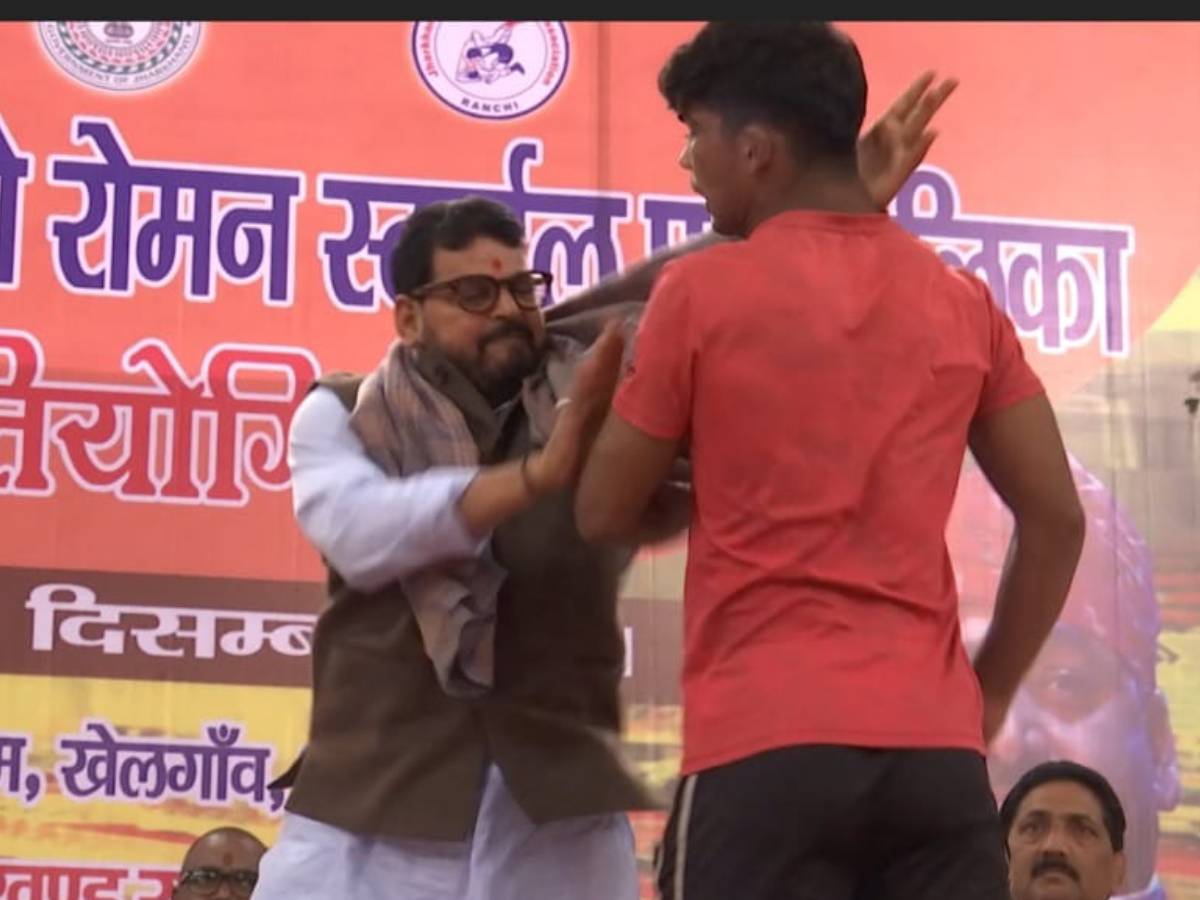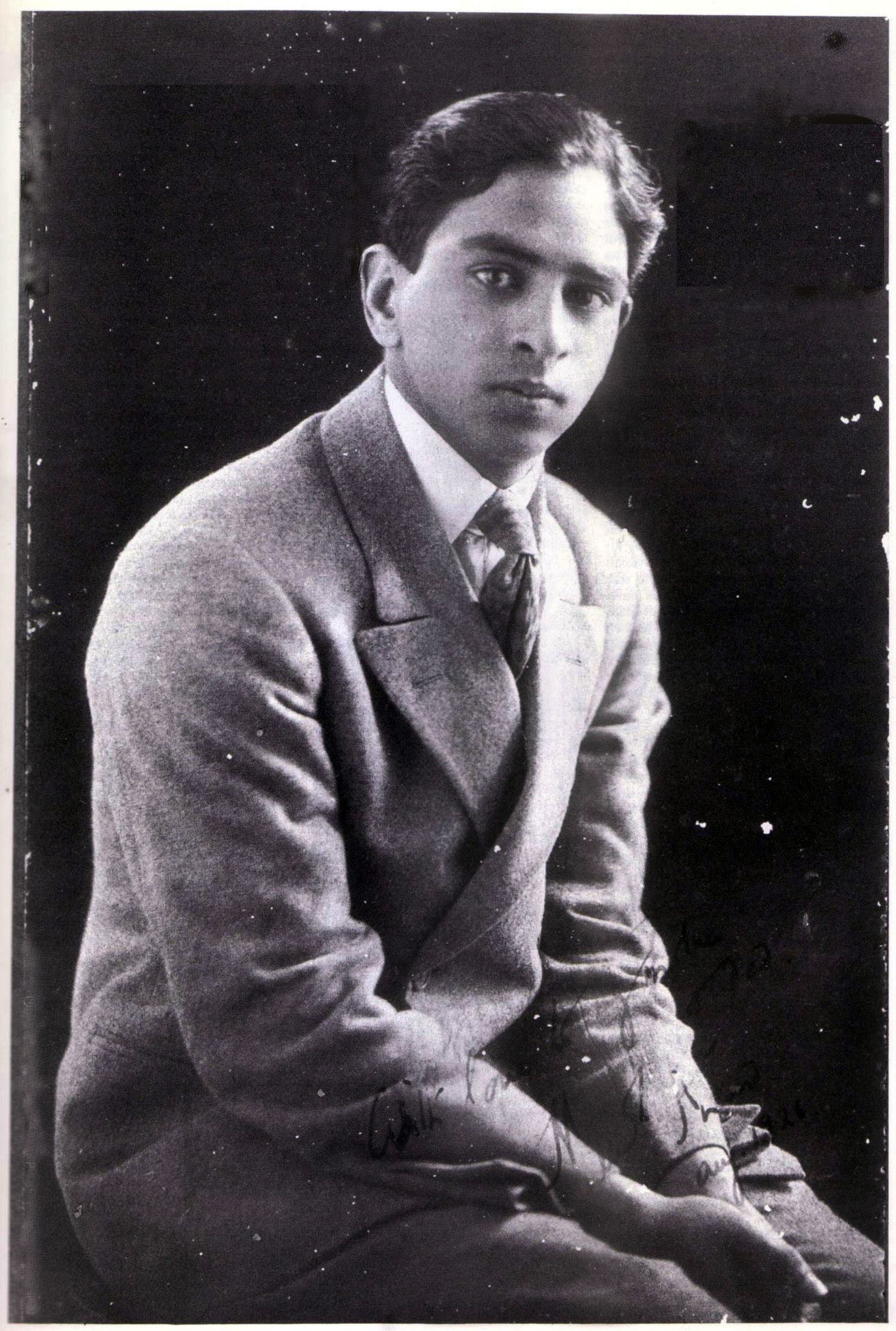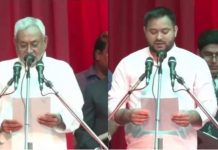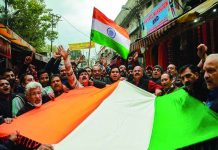
There’s apprehension and unease and scare amongst the minority communities in the country, as there seems no control over the violence unleashed by the right-wing Hindutva groups.
Christmas is here and the New Year readying to unfold, but there seems no harnessing of the violent attacks on the Christian community. And not a word of genuine apology from the state functionaries. An immense tragedy for not just the Christian community but for all of us.
There is growing concern about the very notion of our collective togetherness — Will it remain only in the textbooks or along the fairy tale strain? Will it be possible (ethically, that is) for any of the Indian political rulers of the day, to pay courtesy calls and coo ‘Merry Christmas’ to the Christian heads of State the world over? Will it be a mere formality for the Hindutva lot to fit in, in their stale speeches, this oft repeated phrase ‘sabka saath, sabka vikaas’, when it holds out little substance, far away from the ground reality?
There’s apprehension and unease and scare amongst the minority communities in the country, as there seems no control over the violence unleashed by the Right-Wing Hindutva groups. It wouldn’t be amiss to say that in particular locations-cum-situations they seem to be hand in glove with the political lot and the political machinery under their direct control. Needless to add that in such situations the minority communities are targeted on any given alibi. The most going alibi is religious conversions! Provoking me to react: those of us who were admitted in convent schools, were not converted to Christianity!
Today we can write and speak and converse in English is because of the selfless efforts of the nuns. Their teaching went beyond the routine; we were made aware of the basic core values that touch our very existence… gratitude to our Creator for the daily bread and blessings.
With the New Year unfolding …
Call it a mere formality or an ongoing dastoor, as the year ends and the new year takes off, one is supposed to take note of the positive highlights. Well, for the last several hours, I have been thinking, mind you thinking very hard, on any of the positives of 2021 but sadly nothing came up! Not a single thing that stands out or impresses.
Nah, new airports or highways don’t hold out, as only a very small percentage of our citizens can actually make use of them. The rest of us just cannot afford to travel from here to there, so what if new airports come up! For whom? Not for us!
And what’s all this tamasha and distraction gimmicks of changing names of cities, towns, roads! Even changing age limits to marry or not marry will bring about nil change, when all that thrives is sheer poverty, and along with that muscle power!
This nudges and provokes one to mention that just last week a particular photograph hit – BJP MP, Brijbhushan Sharan Singh, slapping a young wrestler during a national championship event in Jharkhand capital Ranchi. Singh also happens to be the president of the Wrestling Federation of India, and was present as chief guest on the first day of the Under-15 National Wrestling Championship event at the Shaheed Ganpat Rai Indoor Stadium in Ranchi. It is whilst he was present there, he slapped a young participant in the under 15 age group, who was not supposed to participate as he did not fit in the age category. The young participant could have been told to get off stage but to be slapped in public was horrifying. A very disturbing capture. Wonder if Singh has been ousted from the Wrestling Federation of India, or continues to sit up there, to slap or scare many more of our future sportsmen!
This year – 2021– has been full of deaths and diseases and deceits and destruction It has left us more than deprived for years to come. Perhaps, the worst affected are our children.
Mind you, if we don’t reach out to our children, we are doomed. I’m not into any of the new-year resolution sermons, but yes, I feel it is the duty of each one of us to reach out to children who sit deprived of education and food and even the basic woollens to face a very harsh winter. In fact, just last evening, as I walked past a closed down construction site, I spotted a labourer’s family with their children scantily clad. This, when it was one of those bitterly cold December evenings here, in one of the suburbs of the capital city, New Delhi. To the ‘why’ the parents looked sheepish, before uttering, “Because with no-work, we have no money to buy a thing!”
I wonder why there’s little focus on this grim reality of our times. Where is that childhood for our children? It seems in tatters! No childhood! Straight into the rough and tough world of adulthood!
Don’t know how tough it would be getting for our children with special needs. In fact, I’m reminded of Komal G.B.Singh-made documentary, titled ‘Neel Gulab’. This news reader- turned-film maker had made this film years back in the 90s, focusing on a spastic child.
To this day, her reasons for making this film hold out: “I felt I was getting stuck in a grove, so thought of making documentaries on social issues, partnering with film maker Asha Dutta …I’m making films only on social issues, although it is a struggle to make such social-oriented films but I derive a lot of strength from the satisfaction it gives. Also, your creativity wants you to do more satisfying things in life. We are not giving directions do a this for the spastics. All that we want to say or relay is that do not pity them but treat them with a lot of gentle love and then see them bloom.”
Komal had detailed more, “Actually New York-based Gerda Klein’s poem – The Blue Rose – rotating around a little spastic girl, touched Asha and I to such an extent that we decided to make a film on that. We were determined that whatever be the costs or the hurdles or the challenges involved in dealing with such a sensitive subject we’d still go ahead and make this film…Spastic children are special, as rare as the blue rose, and if tended gently and cared for, they could bloom to such heights that you and I would be nowhere in front of them and their talent …Also, full credit to Gulzar saab, MF Husain, Amjad Ali Khan, Jaya and Amitabh Bachchan for making this film bloom …Gulzar saab wrote a beautiful Hindi adaptation of the original poem by Gerda Klein, maestro Amjad Ali Khan rendered music for this film, Hussain sahib did the background canvas for the film and Jaya did the commentary…And none of them charged, saying they were doing this for cause.”
And whilst keying in these words and sentences on Komal G.B. Singh and on her film, I have been sitting wondering: Why has she moved away, from centre stage to quiet solitude? In fact, years back this courageous woman had spoken out, not concealing the fact that she had gone through a rather rough patch in life. Perhaps, with that she had opted to move away… a total change of scene for her.
Wish she could make more films on relevant issues of the day.
****
Getting you back to the present .realities. With that, all that I can say: We were better off in those years passed by…when verse and sentiments held sway, with carefree abundance holding out. There was less of violence and hate and divisions. And more of togetherness and free flow of the arts and creativity, of words and verse.
Leaving you with Kerala’s celebrated rebel poet Balachandran Chullikad’s verse titled Ghazal:
December 31
In the music hall of the night
Club/
Ghulam Ali sings
I’m the singer of lost days …
As the music flows, melting
Urdu with the pangs of separation
Into the soft resonance of Ali’s
voice…
A long pent up melody of grief
breaks open the tremulous
window of the harmonium
Inside, the heart reverberates
with
The tabla of season less years
As Ghulam Ali sings …
Remembering Mulk Raj Anand
On Mulk Raj Anand’s just passed by birthday (he was born December 12, 1905, in Peshawar), I sat pondering on the two traits of his. The focus of his writings on the ground realities of the disadvantaged sections in our Indian society. Also, his talking aloud the depressive lows in his personal life.
He had run away from home when still very young, as his parents wanted him to get married, and also because as he’d told me during the course of an interview, “there was too much tension for me at home”. In his book “Pilpali Sahab” he wrote: “My earliest memory is of me as a spoilt child with a big ego in a small body.”
Mulk Raj Anand reached the UK in 1924. A chance meeting with Ananda Kumaraswamy there, made him change his entire outlook. He had detailed, “Kumaraswamy brought me in touch with our culture, not as it was portrayed by the British, but he showed it to me through the Indian viewpoint”. Enrolling himself at Cambridge soon after, he was influenced by his philosopher-teacher, Lord Russell, and also by sculptor Eric Gill and he became an active member of MARS (Modern Architects Research Society).
Around this time he came out with his first book “Hindu View of Art”. Before he could complete his second book on Persian paintings, he fell in love, starting off another painful phase of his life. “I fell in love with Irene, an Irish girl who was involved in the Irish national struggle. In 1927 she died. On hearing of her death, I suffered a breakdown and it took me almost five years to recover. My meeting with Sigmund Freud just after the first nervous breakdown in 1927 helped me to some extent… he told me that I was suffering from the Mother Fixation Syndrome and his exact words were: ‘Like most Indians you love your mother more than your father and to you every woman is a mother image’. He noted the role of my father and also took note of the tensions between my parents. I felt all right to a great extent after about five sittings with him but then had two subsequent nervous breakdowns.”
Mulk had his second breakdown when he visited Mahatma Gandhi at the Sabarmati Ashram. “That was the time I had finished writing ‘The Untouchable’ and when 19 publishers turned it down I fell ill.”

He told me that Gandhi helped cure him by giving him a talisman: “Gandhi told me I will give you this talisman — and it is whenever you are in doubt or when the self becomes too much for you, try the following, that is, recall the face of the poorest and the most helpless man who you may have seen and ask yourself if the step you contemplate is going to be of any use to him. Then you will find your doubts and self melting away.”
He went back to the UK and befriended another woman Gertrude Mitchell, an activist working in a leper colony. Mulk recovered this time by writing the novel “Across the black waters”.
In an interview given to me in 1999, he’d said: “Whenever I am disturbed by events unfolding around me I write for at least two or three hours. I believe that a writer does not live in isolation and social pressures and political changes are bound to affect him. At times, I question myself whether we are the same people who had created the Ellora caves in the second century. See what has become of us — today most of us wouldn’t even know the significance of the Ajanta Ellora caves. We have no time to think and read because we are busy watching bosomy heroines on the small screen, a hero chasing some heroine with all possible vulgarity in the backdrop. Today parents themselves put matrimonial advertisements in newspapers to ‘sell off’ their daughters in the marriage bazaar. Today marriages are nothing but mere traps where the half man (I call the Indian man as half man) reduces the wife to not only a domestic but also a prey to his lust. In most marriages there is no tender love making but sheer rape or no sex at all!”
Mulk not only set up the concept of the Triennale (which he had started with French writer Andre Malraux) but also provoked others to take to arts in everyday living. His one single remark to O.P. Jain — that you’d die as a shopkeeper — was so provocative that paper tycoon O.P. Jain moved away from his paper business towards the crafts and arts of the country.
Mulk was also very critical of the architects of the day: “The rather strange yet sophisticated animal on two legs called the architect is the most dangerous species let loose by the British, for he has snatched from us our Indian style of living and inflicted on us an alien style which is so unfit for our climate. Today’s nouveau riche live in English bungalows with nine rooms, including a drawing room. But if you ask the architect its purpose he will just stare blankly. Those who cannot afford mansions are stuffed by our architect into skyscrapers, little realizing havoc it can create without fire safety equipment. Whatever happened to our three-roomed homes, which were complete with a living room which was livened by gaddas and murrahs.”
He would talk of the significance to colours. “Indians don’t know the effect of colour on our moods. The red here (red-coloured bed and chairs and tables in his Lokayata home in New Delhi) not only contrasts with the greenery outside but it’s also an exciting colour. Yellow signifies happiness. Never use pink, it’s a bad colour.”
Women did play a significant role in his life. When I’d asked whether he had been distracted by women, he quipped: “I’m attracted to women, but for God’s sake don’t mix up love with sex. I believe in love and love is a very tender relationship which comes after much devotion…Most of my writings are based on them and around the circumstances in which they lived or died. I have suffered not only in relationships but also on the marriage front. My first marriage with actress Kathleen Van Gelder failed. The second marriage to Anel D’Silva also couldn’t take place because she changed her mind at the last minute. I then married dancer Shireen Vajidar and this marriage is just going on…Yes, just going on.”
Though he felt he was saddled with a marriage and a wife, yet he would say: “Most urban marriages break down since 99 per cent men deviate from marriage at some stage or the other. They treat their wives rottenly. Even in educated households the wife is raped by her own husband. In fact one of my novels is based on this true incident where a woman artist is raped by her husband on the very first night of marriage.”
Mulk was educated at the universities of Panjab, Cambridge and Sorbonne. He obtained his Ph.D from the University of London in 1929. Honours did come his way. But such men don’t really crave for recognition. He received the International Peace Prize, Vienna, in 1950. He had been the Chairman of the Lalit Kala Akademi. He had won the Sahitya Akademi Award. He was also honoured with a Padma Bhushan in 1967. He has written a numerous short stories, 25 novels, edited 135 issues of Marg, but what I marvelled was the fact that there was more to Mulk than writing. He had adopted a village in Maharashtra, was bringing up several Dalit children and promoting Dalit literature. Perhaps, Mulk’s biggest contribution has been the focus on the grim Indian realities in his writing.
Perhaps, he was much too disillusioned with the system and decay spreading out, and a couple of years before he passed away in 2004, he had shifted to Khandala, far away from the crowds.
I’m not too sure how he’d have fared if alive today, in today’s politically hopeless scenario… with criminals and crime-doers up there, on those high pedestals!












